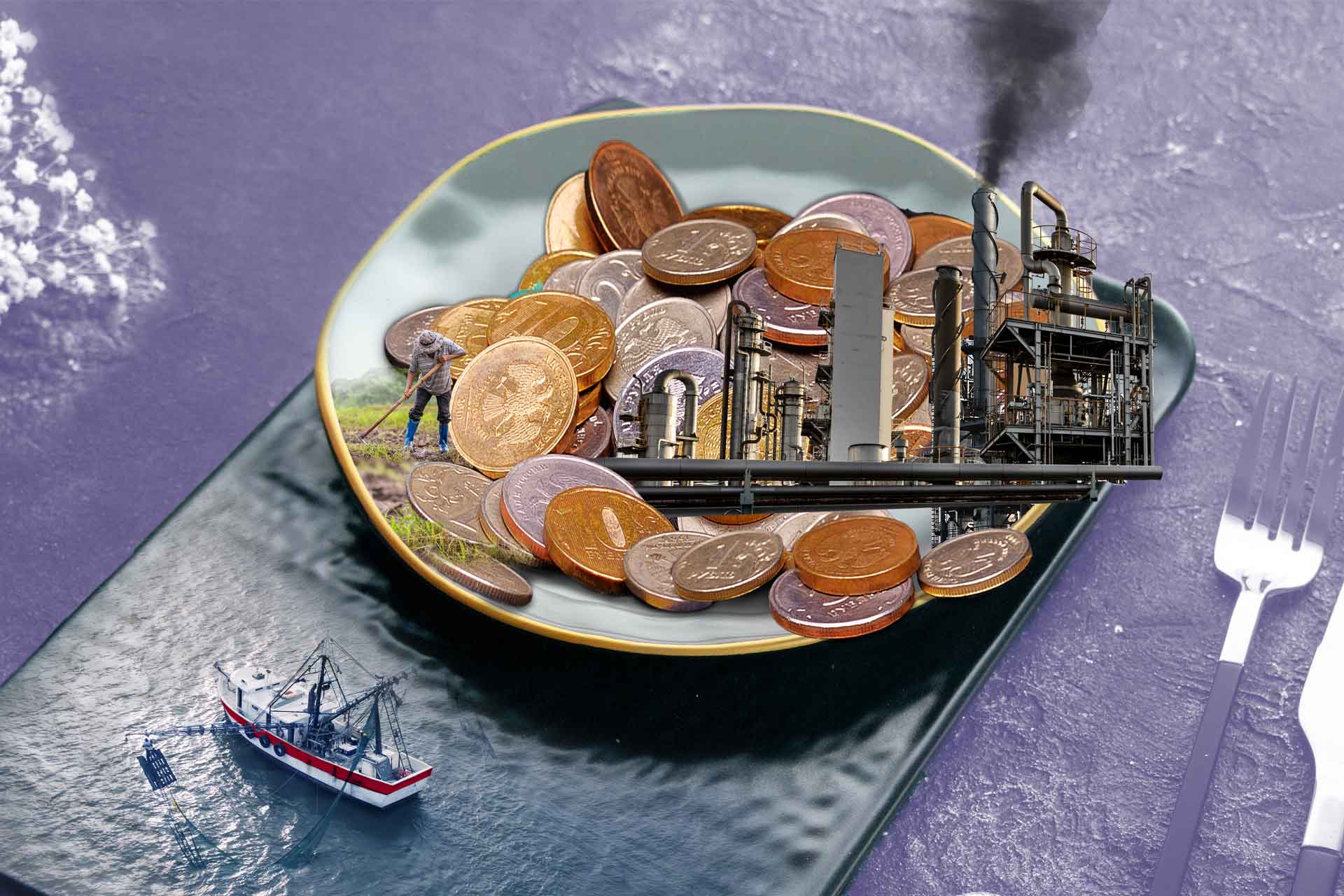The terms used to refer to the current dominant food system are: ‘industrial food system’, ‘corporate food system’, ‘agri-food system’, and ‘capitalist neoliberal food system’.
This system is based on large-scale industrialized food production, processing, packing, and transporting through increasingly globalized value chains. One example is wheat that is grown in Ukraine or South Africa, processed into flour in Turkey or Indonesia, and exported and made into daily food products like bread in Italy and noodles in Korea.
But what impacts does this dominant food system have for other existing food systems, like peasants’ or Indigenous Peoples’ food systems? And what does it mean for our planet and the wellbeing of all people?
Before food items reach our tables, local food systems are altered, people and communities are displaced, and small-scale farmers are marginalized. They end up losing control and access to natural resources, including seeds. Vast territories are deforested and converted into plantations of monocrops or single high-value crops such as soybeans, wheat, maize, and potatoes, which are planted across the same vast areas of land year after year.
While diverse and localized food systems continue to exist, and people organize to create new ones, these are continuously marginalized due to the expansion of the dominant industrial food system’s control over natural resources and people.
As mere consumers, we may not see the sheer injustice of this dominant food model because we are at the far end of its system. But it is very likely that the brand of soy-fed chicken that we love to fry and the breakfast corn cereals that we always buy are just some of many unfair ingredients, which are unfortunately not displayed on the labels of the food products we purchase in supermarkets.
